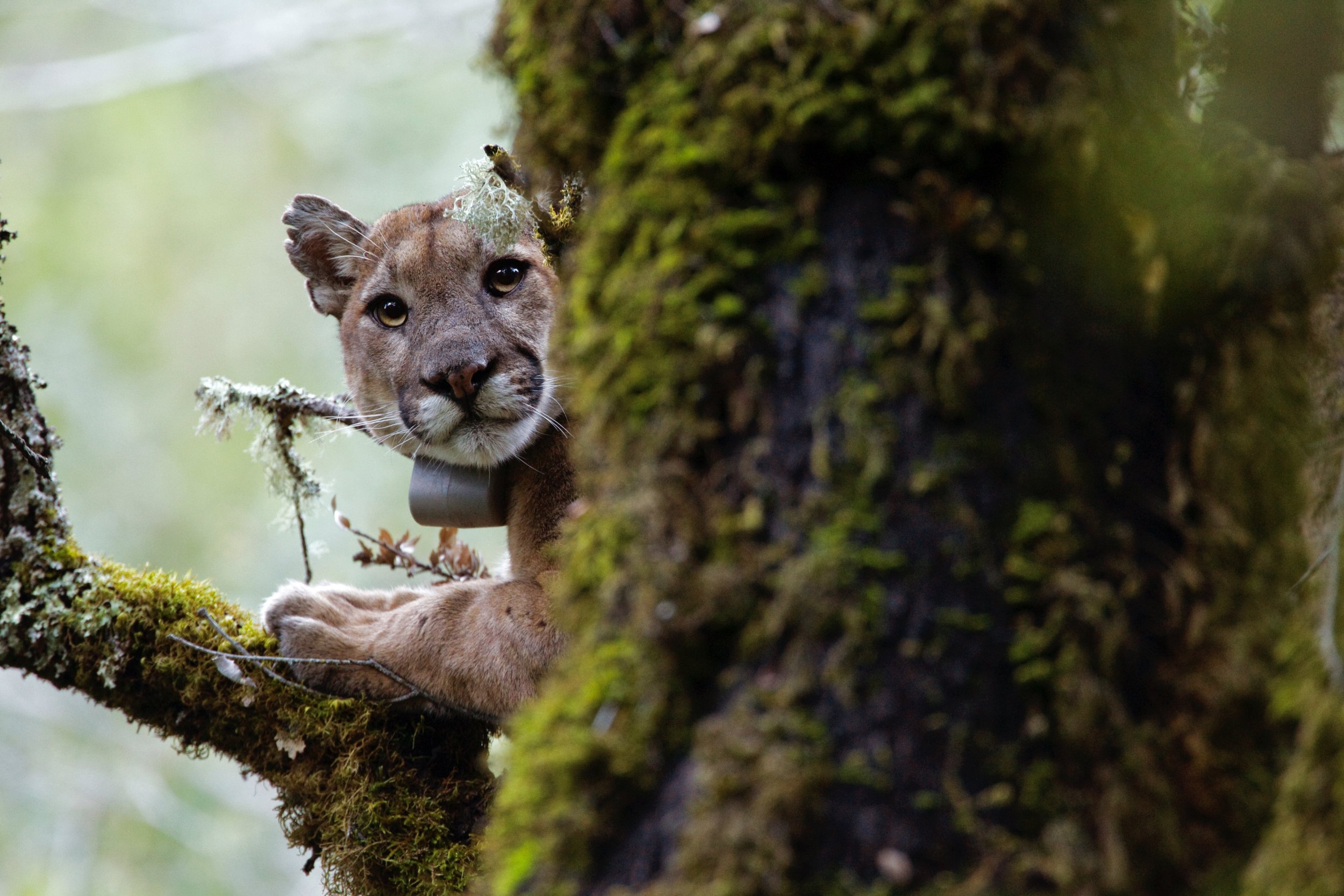
Humans fear predators like mountain lions, but what we often fail to realize is how much they may fear us. After all, humans hunted and extirpated the animal from most of the United States, while fatal puma attacks on humans are rare.
New research shows that the pumas—also known as panthers, cougars, mountain lions or catamounts—immediately flee large deer prey that they've killed, upon hearing humans. In a study to be published June 21 in the journal Proceedings of the Royal Society B, scientists show that their response to the sound of human voices is immediate and lasting.
Justine Smith, a postdoctoral researcher at UC-Berkeley and colleagues followed 17 radio-collared mountain lions in the Santa Cruz Mountains of Central California to a spot where they'd killed a deer. They installed a camera nearby that could also play the sound of humans or a native frog, and videotaped the results. In 83 percent of cases, the animals immediately fled, and nearly half of these animals didn't return to the site to finish feeding on their deer-meal, says Smith, who completed the study as a PhD student at the University of California, Santa Cruz.
One of the animals that didn't run away was a very old male that died not long after the study. The researchers think that due to his age, it may have been more difficult than usual to catch a deer, and he thus was less willing to give it up, Smith says.
The researchers randomized their playback so that the animals either first heard the sound of a frog calling, or people. For humans, they picked clips of people on talk radio, though they chose non-combative segments from "both conservative and liberal hosts" Smith says, laughing, noting that the animals appear to be non-partisan. No pumas could be immediately reached for comment.
"Our intention was to test if pumas perceived humans directly as a predator, and... in almost every case pumas fled from the sound of humans," Smith says. "It's conclusive evidence they do flee from humans," and shows they consider humans as predators. The hunter has long since become the hunted.
Previous work by Smith and colleagues had shown that pumas spend less time feeding on deer in suburban versus rural areas, though they actually kill more prey.
The study refers to humans as "super predators," a phrase coined in a 2015 Science paper showing that people kill other species at a rate unseen in other species. The current paper adds to evidence that our predatory behavior influences even large carnivores like pumas, with untold effects on the ecosystem.
Uncommon Knowledge
Newsweek is committed to challenging conventional wisdom and finding connections in the search for common ground.
Newsweek is committed to challenging conventional wisdom and finding connections in the search for common ground.
About the writer
Douglas Main is a journalist who lives in New York City and whose writing has appeared in the New York ... Read more
To read how Newsweek uses AI as a newsroom tool, Click here.








